KANO, Nigeria – When Batsari’s health centre collapsed, a ruler’s home became a hospital — exposing Nigeria’s rural healthcare crisis.
In Kano State, children are still dying from malaria, diarrhoea, and other illnesses the world has long learned how to prevent. In Batsari, Gwarzo Local Government, the collapse of the only health centre means villagers now rely on a tiny shop inside the District Head’s house as their “clinic.” When Hussaini Ibrahim Kafi visited the community, he found mothers grieving children lost to fevers, and families forced to choose between long, costly journeys or no treatment at all—a stark portrait of healthcare failure in rural Nigeria.
A Symbol of Abandonment
What stands today in Batsari village, a community in Kano State, is not a clinic but a carcass of one. The walls of its former Primary Health Centre (PHC) are cracked, riddled with holes, and stripped of plaster. The roof has long vanished, leaving only columns open to the sky. Bushes thrive where patients once sat, while lizards scurry across the ruins as if guarding a forgotten grave and chickens dart across what was once a reception hall.
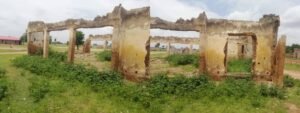
For over five years, the collapsed building that once served as the lifeline of healthcare in Batsari, Gwarzo Local Government Area of Kano State, has stood as a monument to abandonment. In this farming community of more than 5,000 residents, its ruins tell a brutal story: when government neglect shuts the doors of care, survival itself becomes an act of improvisation.
A District Head’s Sacrifice
Faced with silence from government authorities, District Head, Muhammad Salisu Jibrin, who has ruled for 42 years, made an unusual sacrifice: he donated part of his house — a shop within his palace — to serve as the only clinic.
Every day, between 30 and 40 patients squeeze into the small room. Shelves that once stored millet and soap now hold paracetamol and malaria tablets. Wooden benches double as waiting chairs. Privacy is a luxury no one can afford.
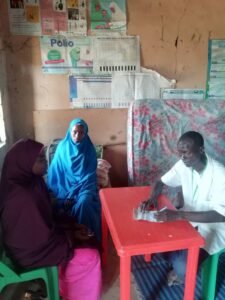
“If we remain silent, one day we will wake up to discover we don’t have a single health worker left,” Jibrin told Africa Health Report. “That was why I decided to release part of my house, free of charge, for use as a clinic.”
Mothers in Peril
For women, Batsari’s health collapse is life-threatening. Basira Jibrin, a young mother, recounted how her neighbour bled to death on the road while being rushed 40 kilometres to Gwarzo General Hospital.
“There are no maternity services here. Women face death when giving birth. The small shop cannot save them,” she said.
Another resident, Aminu Salisu Jibrin, shared his ordeal when his wife went into labour at night. “We had to hire a motorbike to Gwarzo because the only doctor wasn’t on duty. Anything could have happened on the way.”
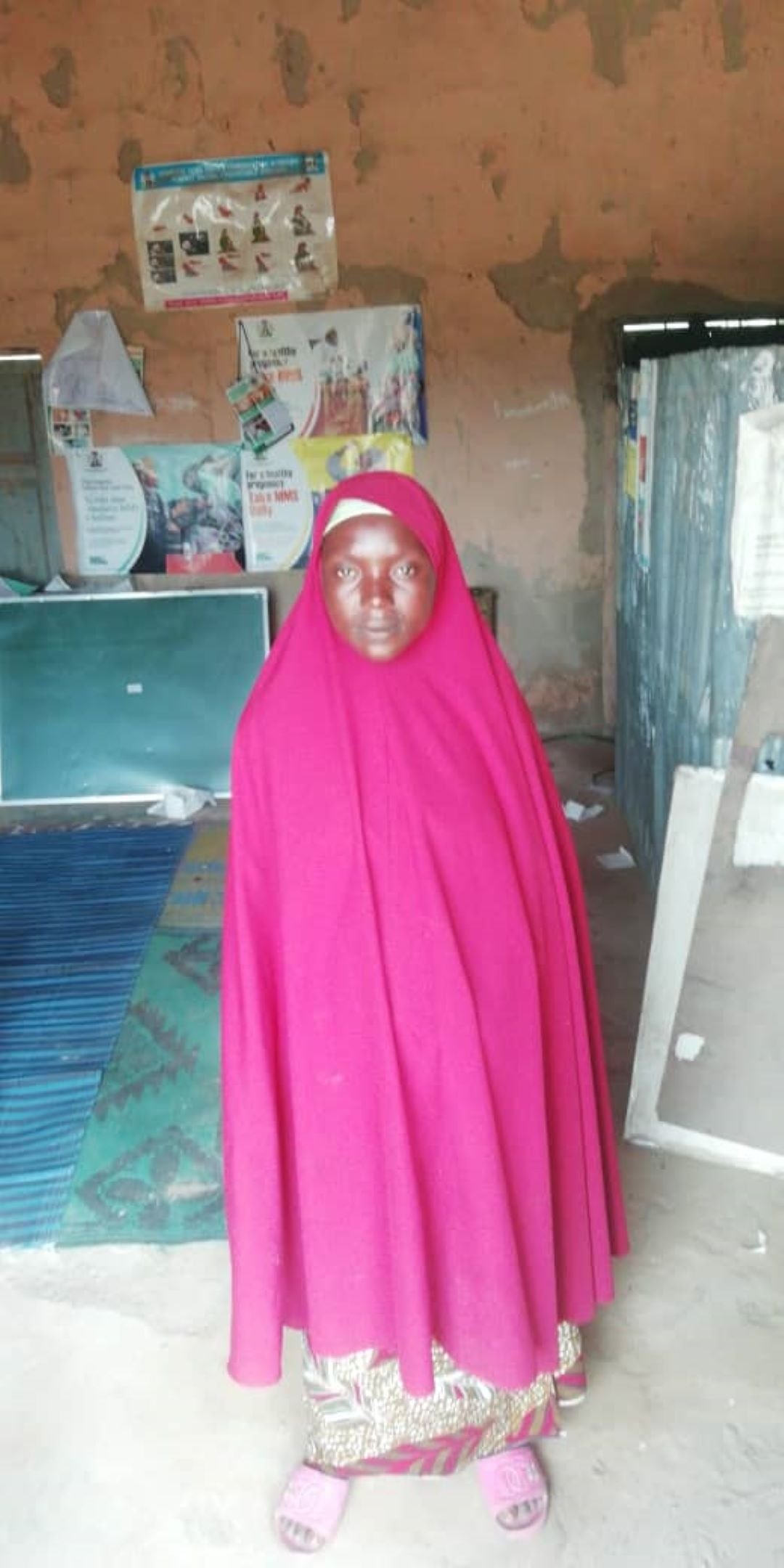
Health by Improvisation
A visit by AHR, reports that the improvised clinic runs with severe limitations; one Community Health Extension Worker (CHEW) visits three times weekly, services are limited to malaria and diarrhoea treatment, antenatal checks, and dispensing basic drugs.
In emergencies, patients must travel 40km, spending ₦3,000 — nearly a week’s income for many, volunteers sweep floors, assist during immunisation, and fetch water — unpaid and untrained.
The bushes outside serve as toilets; there is no electricity, water, or vaccine storage.
“We help with cleaning, fetching water, even supporting mothers during immunisation,” said Adamu Abdullahi, a volunteer. “We do it because we cannot watch our people die.”
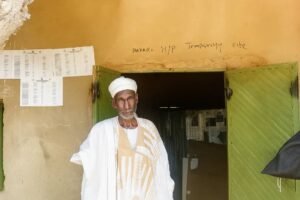
A Wider Picture of Collapse
Batsari is not alone. Across rural Kano, an audit in 2024 found that 60% of PHCs in Nigeria rural communities lack electricity, and 40% have no qualified personnel. Across Northern Nigeria, ad hoc “clinics” in shops, mud houses, and abandoned classrooms have become common.
“This is not resilience, it is abandonment,” argued Dr. Amina Bala, a health economist at Bayero University Kano. “When rulers use their homes as hospitals, it signals a collapse of governance.”
The Government’s Defence
The Kano State Government insists progress is being made.
Ministry of Health spokesperson Nabilusi Abubakar K/Na’isa told AHR that 218 PHCs have been completed, out of a plan to build 485 across the state.
He admitted that dilapidated centres, like Batsari’s, remain widespread but stressed that rehabilitation and staffing are part of the long-term agenda.
“We are not abandoning old facilities. Renovation and staffing are part of the health sector plan. Communities are partners in implementation.”
Yet in Batsari, the only visible “plan” is the cracked skeleton of its PHC, overtaken by weeds and villagers say promises are not medicine.
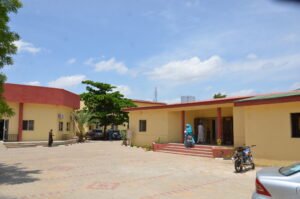
Insecurity Deepens the Crisis
Beyond infrastructure, insecurity makes health access harder. Banditry, kidnappings, and farmer-herder conflicts across Northern Nigeria deter health workers from rural postings. Some villagers now rely on retired nurses or donations from diaspora relatives.
“This patchwork survival is unsustainable,” warned Dr. Ibrahim Sani, a Kano-based public health consultant. “Healthcare is a right, not a privilege. No community should beg for it.”
A Plea for Change
As dusk falls over Batsari, patients drift away from the district head’s house, some relieved, others anxious. But beneath the hum of crickets lies a sharp truth: this community’s survival rests on a shopkeeper’s wall and the ruins of the PHC stand in the distance, whispering of promises broken.
“We are grateful to our leaders who made this possible,” said elder Malam Sulaiman Umar. “But honestly, we feel abandoned. We hope the Deputy Governor, whose hometown is Gwarzo, remembers that Batsari is only a few kilometres away.”




I do not even know how I ended up here but I thought this post was great I do not know who you are but certainly youre going to a famous blogger if you are not already Cheers
Your blog is a beacon of light in the often murky waters of online content. Your thoughtful analysis and insightful commentary never fail to leave a lasting impression. Keep up the amazing work!